Back to school - balance is key!Going back to school can be a busy and challenging time for teachers. Balancing work, personal life, and maintaining overall well-being is crucial for a successful and fulfilling academic year. Here are some tips to help teachers make their life/school balance easier:
Toodles, Múinteoir Cole
0 Comments
SeTTING up YOUR CLASSROOMCongratulations on becoming a new teacher!
Setting up your first classroom can be an exciting and rewarding experience. Here are 10 tips to help you get started: 1. Plan Ahead: Create a layout of your classroom before setting it up. Consider factors like seating arrangements, learning centres/ areas, and storage areas. This will help you optimise the use of space and make the most of your classroom. 2. Organise Supplies: Invest in storage containers, folders, and bins to keep your supplies neat and easily accessible. LABEL everything, so it's clear where items belong and where students can find them. I think investing in storage from the beginning makes it easy to transport to a new classroom and find items easily throughout the year. 3. Create a Welcoming Environment: Decorate your classroom with bright and engaging visuals that reflect your teaching style and subject. Use posters, bulletin boards, and student work displays to make the space inviting and inspiring. This DOES NOT need to be insta perfect or fully set up from the beginning of the year! You can decorate as you go! 4. Establish Classroom Rules and Procedures: Early on, set clear expectations for behaviour and procedures. Communicate these rules to your students and consistently enforce them. This will help create a positive learning environment and maintain order from the very beginning! 5. Designate Learning Areas/ Stations: This may not be necessary in post primary depending on your subject. Create designated areas for different activities, such as a reading corner, art station, calm down area or science centre. 6. Arrange Student Desks Strategically: Consider the best desk arrangement for your teaching style and subject. You might opt for traditional rows, collaborative clusters, or a combination of both. Be prepared to adjust the layout if needed and don't be afraid to change it up! Cable ties are great for grouping desks together or keeping them in straight lines together. 7. Personalise Your Space: Add a personal touch to your classroom with photos, plants, or items that reflect your interests and hobbies. This helps students see you as a relatable and approachable teacher. 8. Incorporate Technology: Your classroom should have adequate technology already there. This includes a projector/ TV, speakers and a device (computer/ tablet) and appropriate connections for the technology. This is something you can speak to management about if it is not adequate. 9. Create an Organised Teacher Area: Dedicate a space for yourself, where you can keep lesson plans, assessment materials, and personal belongings. Having an organised teacher area will save you time and make your day more efficient. 10. Safety First: Prioritise student safety by ensuring that emergency procedures and safety guidelines are prominently displayed. Familiarise yourself with the school's safety protocols and take necessary precautions in the classroom. Remember that setting up a classroom is an ongoing process. Be open to adapting and adjusting your setup as you gain more teaching experience and understand the needs of your students. Wishing you a successful and fulfilling teaching journey! Toodles, Múinteoir Cole Essential Tips for a Language Teachers InterviewAttending a job interview as a language teacher can be both exciting and nerve-wracking. To help you excel in your interview and increase your chances of securing a position in a post primary school, I have compiled a list of useful tips and sample questions specifically tailored for language teaching positions. By following these tips and preparing your responses, you can showcase your expertise, passion, and suitability for the role.
Tips for Language Teachers Attending an Interview:
https://www.instagram.com/p/CtcUfBwI7Fx/?utm_source=ig_web_copy_link&igshid=MzRlODBiNWFlZA== Preparing for a language teacher interview requires thorough research, thoughtful responses, and a clear understanding of effective language teaching methodologies. By following the tips provided and practicing your answers to the sample MFL-specific questions, you will be better equipped to showcase your expertise, passion, and ability to create engaging language learning experiences. Some of the questions they ask may be in your language so be prepared! Good luck with your interview! Toodles, Múinteoir Cole Essential Tips for a Music Teacher InterviewAttending a job interview can be an exciting yet nerve-wracking experience, especially for music teachers seeking a position in a post primary school. To help you prepare effectively, I have compiled a list of useful tips and sample questions that are specific to the field of music education. By familiarising yourself with these tips and practicing your responses, you can increase your chances of impressing the interview panel and securing your dream job.
Tips for Music Teachers Attending an Interview:
Attending a job interview for a music teaching position in a post primary school requires careful preparation and thoughtful responses. By following the tips provided and practicing your answers to the sample interview questions, you will be better equipped to showcase your expertise, passion, and commitment to music education. Good luck with your interview! Toodles, Múinteoir Cole Prepare for your teacher interview with confidence! Introducing the Teacher Interview Preparation Workbook by Muinteoir Cole. This comprehensive guide is packed with essential tips, sample questions, and exercises to help you showcase your skills and land your dream teaching job. Get your copy today at http://www.muinteoircole.com/store/p96/Teacher_Interview_Preparation_Workbook.html." Hello lovely humans,
I hope you're all keeping well as we head towards the end of the school year! I have been meaning to write this for some time but life & school has been crazy. I am just going to quickly run through my experience of the AP one application and interview process. So the job was advertised and I knew immediately I wanted to apply for it as I know I'd like to go down the leadership route. I filled out the application form and left it till very last minute as I didn't actually realise how much was involved in the application. Looking back I managed it well but I definitely should have given more time to allow others to read it just in case of any errors. I had one final read and submitted the application on the morning of application deadline. After submitting I heard back that day that they received my application and then two days later I received word of an interview offer for the following week. I went to my principal and asked that my classes be covered and he was extremely supportive. I immediately got in touch with Kenneth from Education Interview Hub and he organised a meeting with Jennifer. This mock interview was the biggest help to me and honestly made me so confident. Jennifer put me at ease and gave me advice on my answers and really pushed me to be the best I could be. Her advice and wealth of knowledge was absolutely priceless and I don't know how I would have managed without it. Before meeting with Jennifer I had researched AP interview questions and asked friends in leadership about the interview and what could be asked so `I had some prep done. After meeting with Jennifer she sent me on a recording of my mock interview so I was able to sit down and analyse it and go back over and tidy up some of the answers I had given. On the morning of the interview I practiced asking myself difficult questions and answered them whilst driving to the interview to get me in the zone. Once parked outside (30 mins early) I took out my summarised notes to go over and ran over some of my examples/ scenarios that I had intended to use that showed my leadership skills. In the interview I actually felt calm immediately - in my head I told myself to just breathe and all the work I had done would stand to me and to give it my best. To be honest I felt like I started to answer well but then at some points throughout the interview I found myself losing focus and structure in my answers and just had to ask for the question to be repeated again. I honestly was proud of how I did in my first AP interview but I know that I have work to do to be the best. As you would have seen I was unsuccessful. I don't mind saying this as it was my first interview and I still felt I put my best foot forward and it was an AMAZING learning experience. Personally I suffered a lot with change in the past year and would become nervous and anxious about things that never bothered me before, but for this interview I was CALM. This was a huge win for me as I know now that I am back to who I was before having Wesley (not in a bad way - more so a strong mental health way) and that the pregnancy hormones which played a huge role in making me anxious were finally gone! I came 2nd out of 4 on the interview panel and I am thrilled for who got it as I feel it was well deserved. I have more clarity on what I can do better next time and there definitely will be a next time! Toodles, Múinteoir Cole Hello lovely humans,
Just dropping in to share some ways in which you can build relationships with your students. You don't have to do all of these but I have shared various ways as not everyday will work with every teacher or every class!
I would love to know if any of these work for you, please be sure to let me know what worked and didn't work for you! Toodles, Múinteoir Cole Hello lovely humans,
I promised this blog sooooooooo long ago but life has been so hectic with moving, mom life, etc. I'm gonna jump straight to it! We found out on the Wednesday that we would have an incidental inspection on Friday in school - frantically everybody starting planning and panicking. I (for the first time in my life) remained calm - I knew I was prepared because I decided this year I was getting on top of paperwork so that I wouldn't panic and stress in situations like this - plus I wouldn't have time to get my sh*t together in 2 nights having a baby! All of my plans were in digital format and if they were needed I could show them that way - I didn't print them. Our subject dept info I had digitally & it is also in the staffroom. I did have to try and get the German one up to date as we just had a general MFL one and I thought it would be best to German specific info if it were needed. I had my weekly personal plan in my planner which I have printed in a folder and I use this to keep me on track weekly anyways! I knew I was over prepared and also felt confident that they weren't going to be looking at plans and they wanted to see teaching - that is what these inspections are for. I DID NOT change my lessons or plan anything extra or fancy just because an inspector was coming. I found out 5 mins before class started that the inspector was coming to me, I was actually buzzing because I wanted to have someone watch my teaching - I wanted to know how I was getting on! The bell rang and my 5th years arrived into class - I told them the inspector would be joining us, they actually started panicking lol! The inspector arrived over and introduced himself - he was so lovely and explained to the class he was there just to have a look at what we were doing and to ignore him. My class content:
My feedback:
The inspector took note of some programmes I used: OneNote Classroom Screen Flat.io At the end I was given feedback and asked about Child Protection.
Overall I was so so happy with how the inspection went - the feedback was amazing! I asked if there was anything that I could improve on and I was told if they had to really nitpick at me then they would say the group work between students but said that it was minor because of the type of lesson. Honestly it was not half as bad as inspections that I did through college and I would do it again tomorrow if given the chance. More info on inspections here: https://assets.gov.ie/25258/e2f3707cfb3448db8cb0752613d031bd.pdf How can you have an inspection like this?
Toodles, Nicole x PS Happy 2022! Hello lovely humans,
It has been wayyyyy too long!!!! I had intended to post her more often but it is crazyyyy at the moment to find time for this. Just checking in with you all to let you know how mom and teacher life is working out for me. Well... I think it's great! Going back to school wasn't hard for me as I felt like it was the right time for me to get back into a routine (I need routine for my head) and also Wesley was at a good age where he was a happy baby and didn't get strange or upset when spending time away from me. Before going back to school I did send Wesley a couple of times to the child minder so he would be used to going there when I would go back to school. Why did I go with a child minder you might ask?.. The creche I had intended to send Wesley to wouldn't take him until he was 1 unfortunately but now looking back I am thrilled that it worked out this way as he goes to the best child minder (Not immediate family member). He is so well looked after and honestly my mind is at ease leaving him in great hands - he loves it too! On the first week back my mom came over in the mornings to make sure I could manage getting out the door on time - I was nervous about this in the lead up to it. I didn't know would I manage as I used to be a 'roll out of bed and into the car' person. I never get up earlier than I need and also I like to get up and out the door in the least amount of time possible! In week 2 I had my morning and night time routine in full flow and since then I feel like it has been a breeze (I know this doesn't happen for everyone). I'll give you an insight into how my night and morning goes to get out the door in 30 mins! Night routine: Get bottles & food for Wesley ready Pack Wesley's bag & put in car Pack my school bag Get my clothes ready Get my lunch ready Morning routine: 7am: Alarm goes off 7am - 7:20am: Dress myself, change Wesley's nappy (He stays in PJs and is fed at child minders), have a look at my phone 7:20am - 7:30am: Put fridge stuff into lunch bags, Make coffee (essential), put all bags into car, put dressing gown on Wesley, put Wesley into the car and leave. *I might add that I am on my own with Wesley in the morning but his dad is there for the night time routine and does help a huge amount in making my life easier. He washes the bottles - I hateeeee this lol These routines rarely change - but I can tell you if I don't follow the routine these times run a few minutes later (I do have plenty of time to spare but I would rather not be rushing) Saying goodbye to Wesley in the mornings wasn't as bad or as hard as many told me it would be - but I think that knowing he is happy and in good hands is something I have really told myself to make it easier. He waves goodbye now and it melts my heart! During the day I do think of him and miss him - but that's only when I have time to think, which is rare unfortunately with my busy timetable! I do have early finishes on Tuesdays and Fridays which is really nice and I appreciate the time we have at the weekend together. I try to avoid bringing home any school work in the evenings or at weekends and only do this work when in school or if the boys are watching a match (I'm not a football fan). I have definitely become so efficient and smart with my time... which is a whole other blog post which I will do soon! But for now... Toodles, Nicole Hello everyone,
Long time no write... life has been crazy busy! Before I get started, this is not me boasting or trying to make you feel bad. You must do what you can manage, I'm just letting you know what I managed when doing the PME & working. I often get asked can you manage work and the PME and the answer is definitely YES, you just need to find a balance that suits you. I have worked since my Leaving Cert (Dec before the LC was when I started). I worked every weekend unless I booked off time. When I started college my normal weekend shift was Saturday 3pm - 3am (ish) and Sunday 12 - 10pm. I used to then drive to Cork at 10pm on a Sunday when I finished work to be in college for Monday morning! My mother always said "I'll pay for college but I'm not funding your social life". I had a car to run, a phone bill to pay and obviously my college nights out so giving up work during college was not an option. When I started the PME I continued my weekend work like I did during my undergrad. It wasn't easy and I had to be good with my time BUT it was possible. In PME 2 I even took on another job during the week days towards the end of the year. You might ask did I just work, teach and go to college? No I also danced, had fun with friends, went on nights out, went on holidays - life was not shit! How did I manage to do all of this??? I did it and didn't spend time wondering how I would do it all. A typical week during PME 2: Monday - college & dance in the evening & Monday Club after dance! Tuesday - school & work in the evening Wednesday - school & maybe work in the evening Thursday - school & work in the evening Friday - school, drive home, time with friends Saturday - dancing & work Sunday - gave grinds, work & drive to Cork I had time between the places I had to be, so in that time I had to do college work and placement work and be as efficient as I possibly could. Distractions had to be minimised and I had to really priortise what I had to do immediately! During the school day when I had free classes I would plan my lessons and sort my resources. I aimed to do my school related/ placement related work in school and my college related work (assignments) at home/ in college. I used to promise myself treats to work harder - for example "Right Nicole you can't go to Monday Club unless you get this 1000 word section of your assignment done". Sounds hilarious & mad? You're right! But it worked! I didn't spend half as much time on social media as I do now and I also was really good at ploughing through work and keeping focused. I made a list and made my way through it ticking it off as I went. Now remember I'm not saying you have to do what I did but it is definitely possible to have a part time job (even if it is just a Saturday) on the side while doing PME. Best of luck to any PME's starting, I hope you get on well and remember ASK FOR HELP when you need it. It's not a sign of weakness! Until next time (hopefully not as long) Toodles, Múinteoir Cole Why do we dread the new staffroom so much? We're not teenagers anymore...
I suppose that fear of knowing nobody or being on our own never fully leaves us. Some are better able to handle it than others. A lot of the time the principal will walk you into the staffroom introduce you to 1 or 2 people and then leave you be. So it's up to you then to figure your way around the staffroom. Some staffrooms have a 'sit wherever you want' approach others have 'assigned seats' - I HATE THIS! Not actually assigned by the principal but they assign themselves to a seating arrangement and never change. There is nothing worse than sitting in someones else seat... as if their name is on it! Ridiculous if you ask me! I have been in staffrooms like this - don't fret about it just pull in a chair if one isn't available - you'll soon find a place to sit permanently. It can be very daunting as a newbie entering the staffroom so my advice is:
I'm writing this post to highlight how daunting it can be entering a new staffroom in the hope that anyone reading this will look out for the newcomers in the future. Some tips for current staff members welcoming a new team member:
It's a great idea to have a social committee or wellbeing committee to organise events for staff members at the start of the year - this helps to welcome everyone back and also helps the new staff members to meet the staff and settle in. Ideas for events: Dinner Drinks Bowling - highly recommend! Laser Tag Hike/ Walk Cycling Tea/ Coffee Morning Exercise Activities Hope you enjoyed the read and will help a newbie out this coming August! Toodles, Múinteoir Cole |
AuthorThis is a space for me to share what's on my mind - teaching and life related. Expect nothing fancy or well composed just the real life Múinteoir Cole Archives
July 2023
Categories |
Proudly powered by Weebly

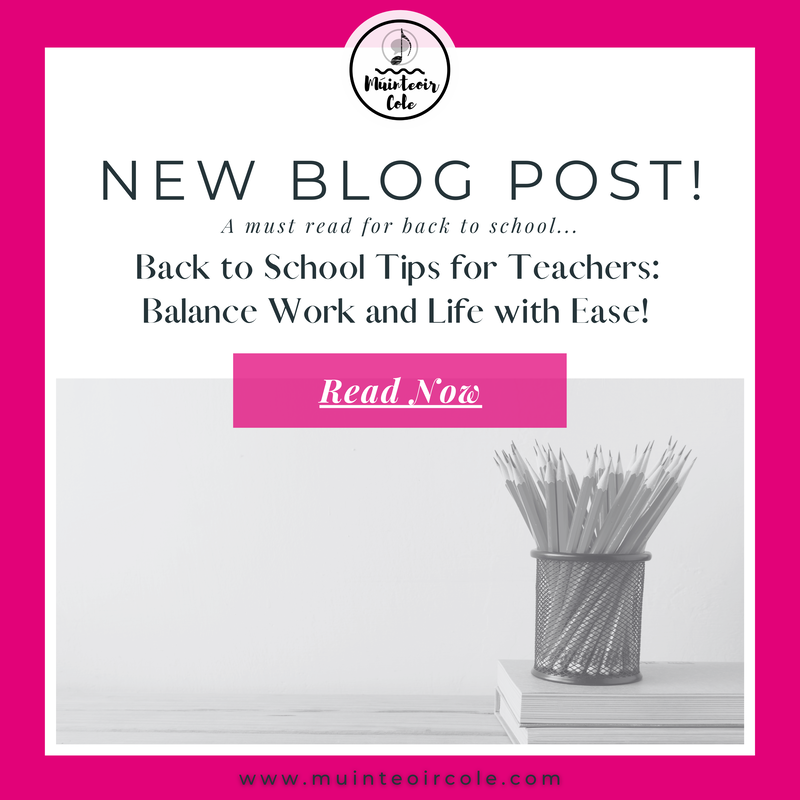
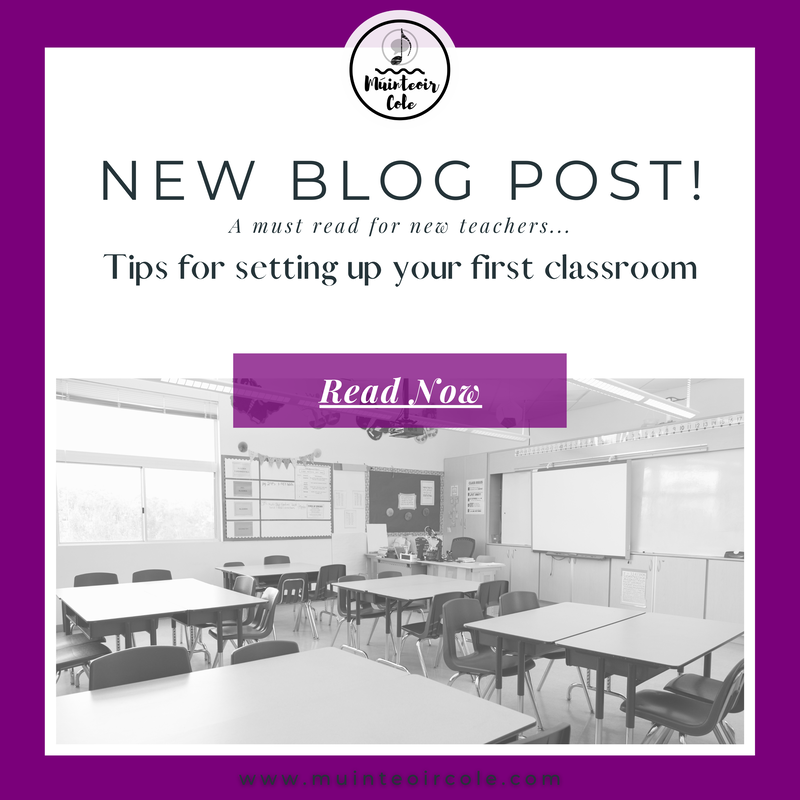
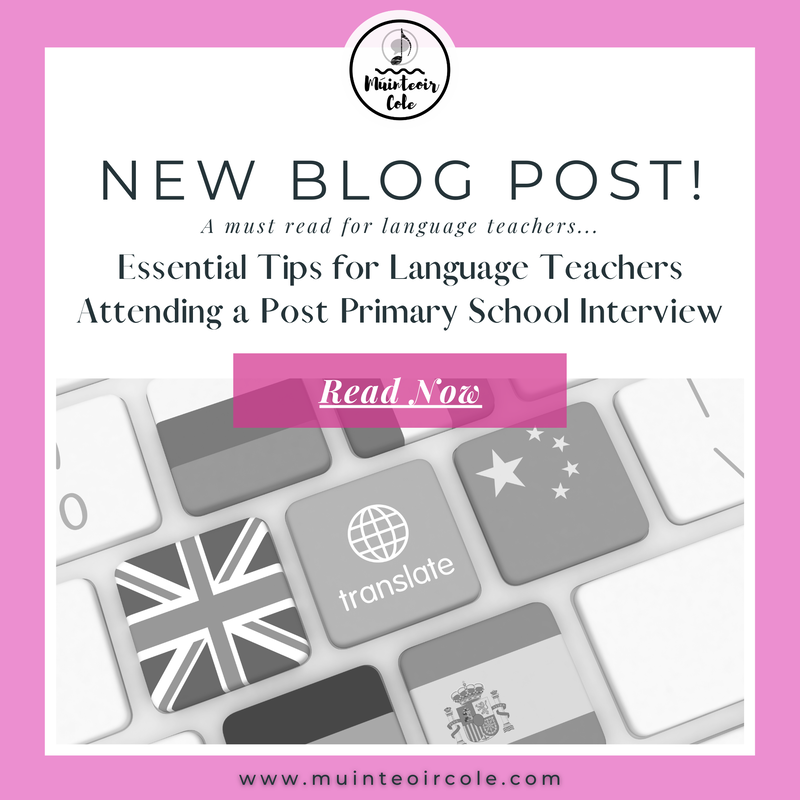
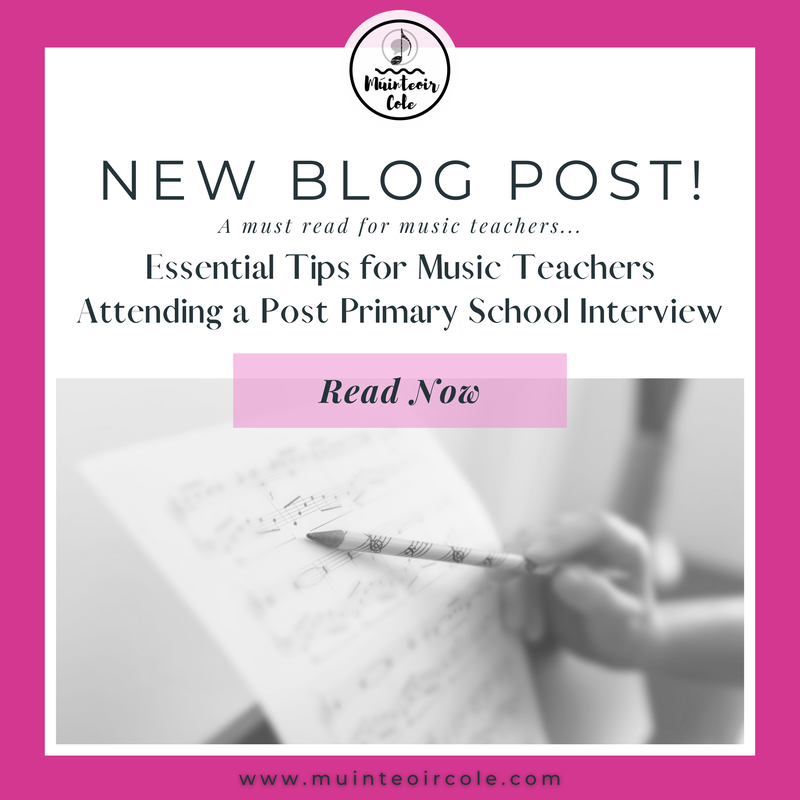
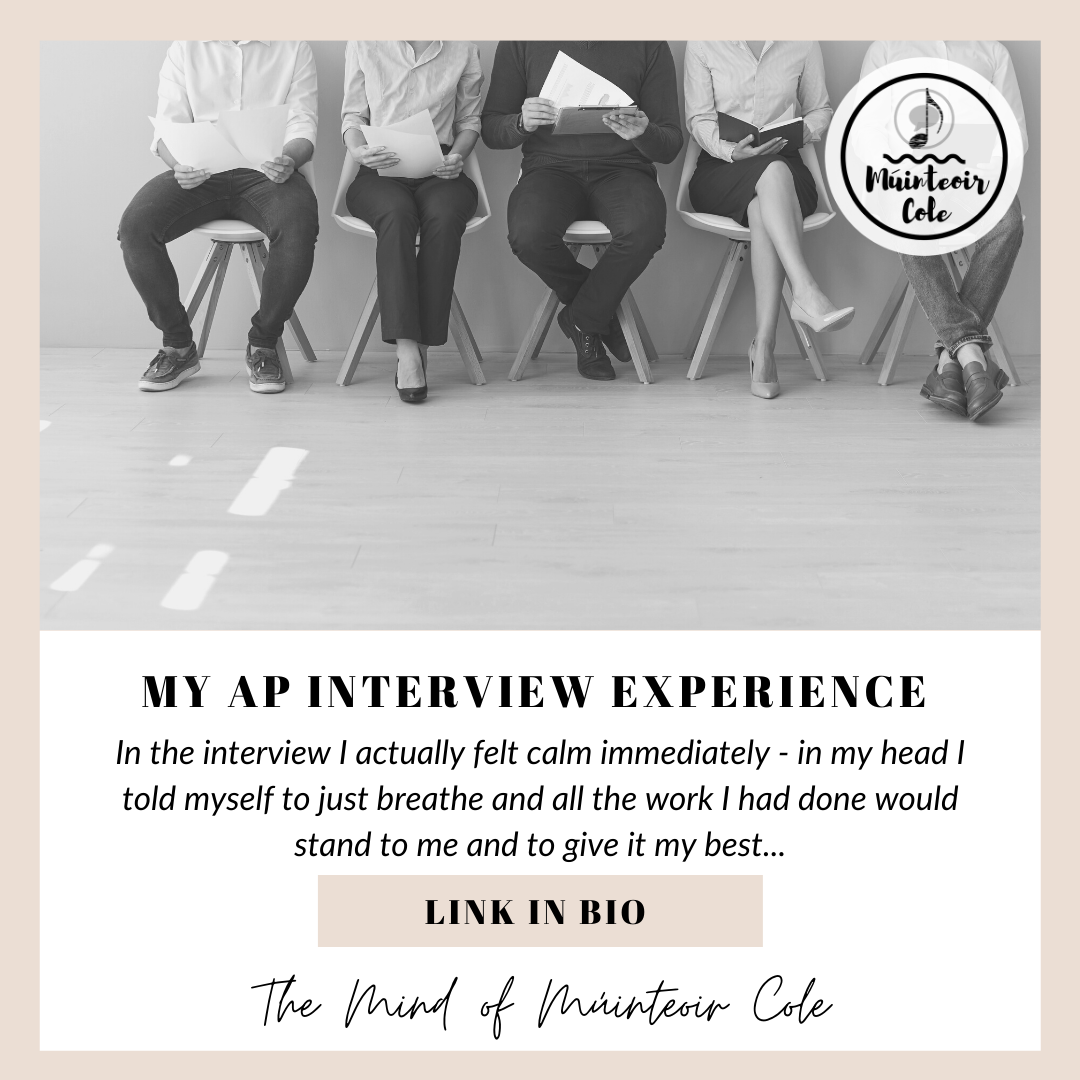
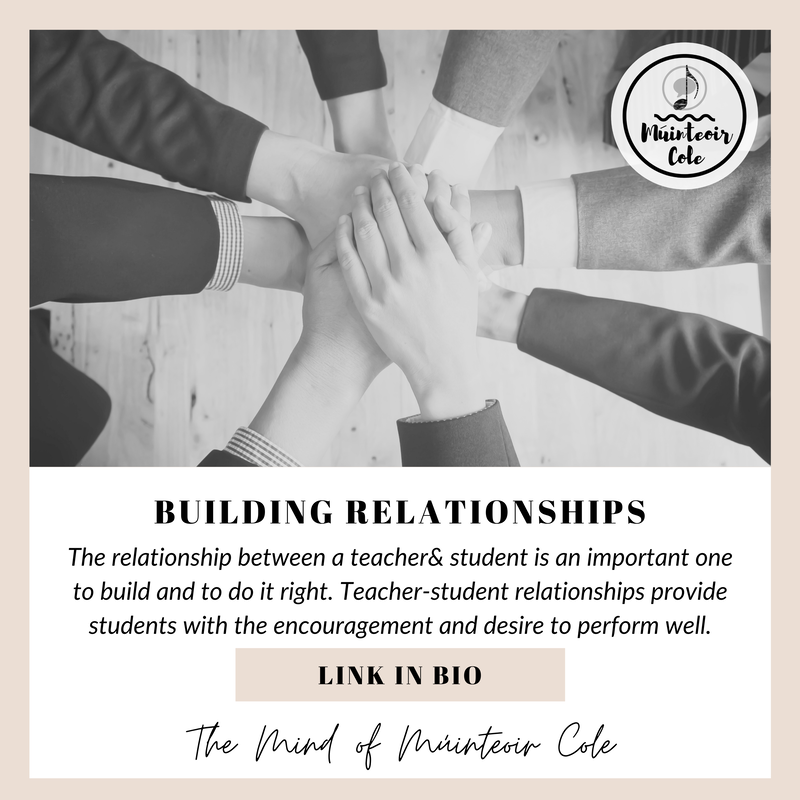
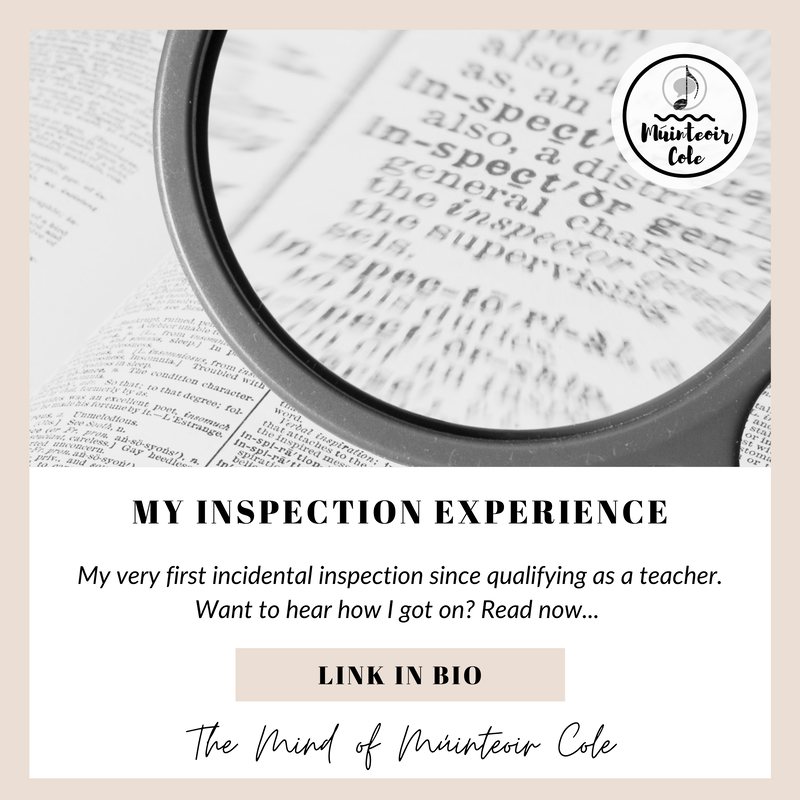
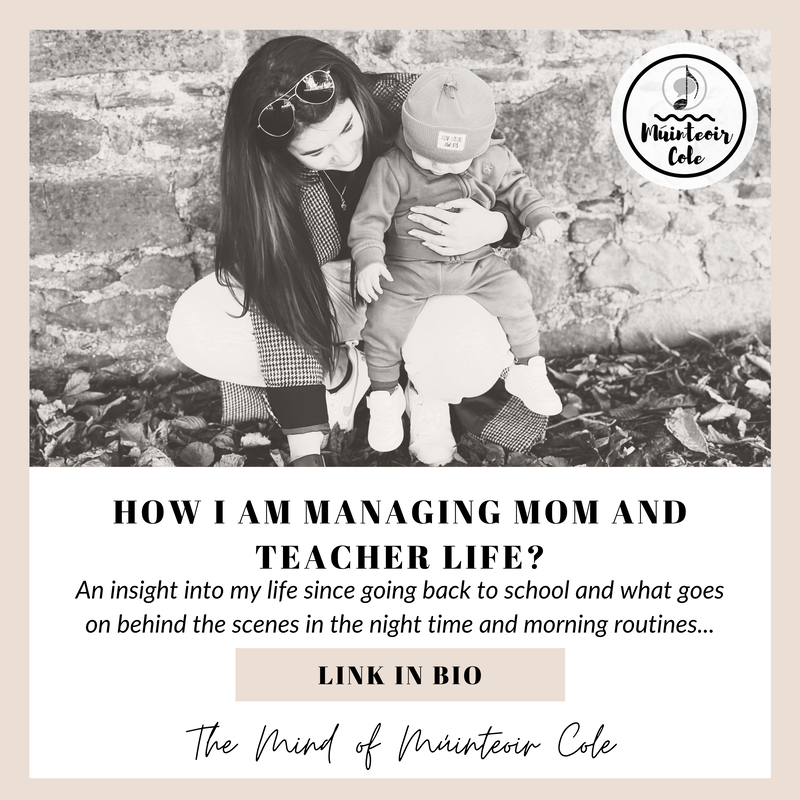
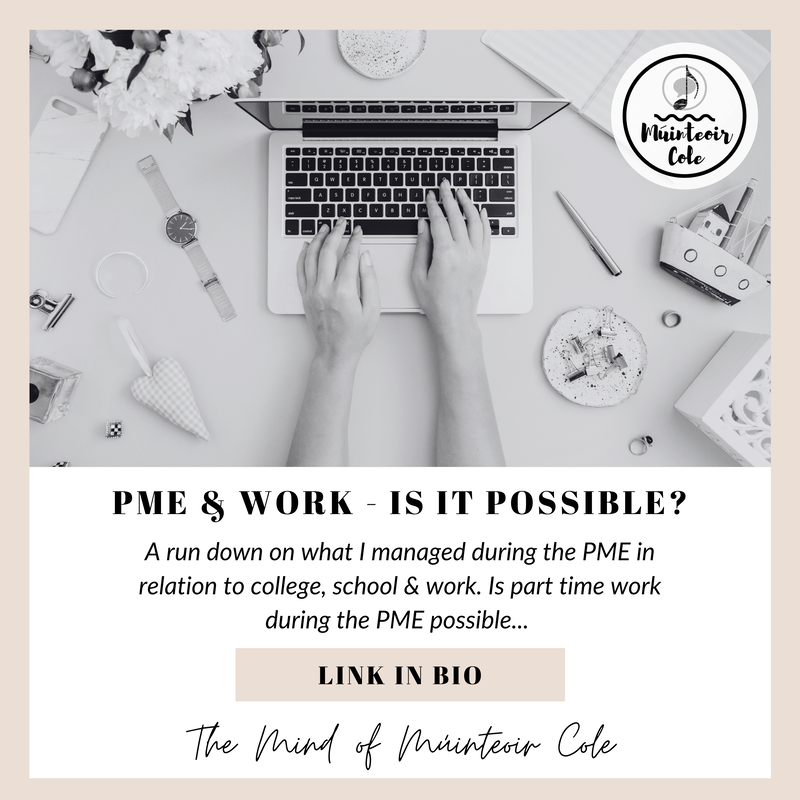

 RSS Feed
RSS Feed